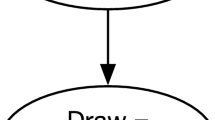Abstract
Epistemological probability is the kind of probability relative to a body of evidence. Many philosophers, including Henry Kyburg and Roderick Chisholm, hold that all epistemological probabilities reflect a relation between an evidential body of propositions and other propositions. But this article argues that some epistemological probabilities for empirical propositions must be relative to non-propositional evidence, specifically the contents of non-propositional perceptual states. In doing so, the article distinguishes between internalism and externalism regarding epistemological probability, and argues for a version of awareness internalism. The article draws three main concluding lessons. First, epistemological probability is not to be identified with the sort of “objective”, experience-independent probability that is familiar from statistical and propensity interpretations of probability. Second, it is doubtful that epistemological probability is measurable, in any useful way, by real numbers, even if it admits of comparative assessments. Third, contrary to the familiar claim of C. I. Lewis, epistemological probability should not be viewed as requiring a basis of certainty.
Similar content being viewed by others
Author information
Authors and Affiliations
Rights and permissions
About this article
Cite this article
Moser, P.K. The foundations of epistemological probability. Erkenntnis 28, 231–251 (1988). https://doi.org/10.1007/BF00166444
Received:
Accepted:
Published:
Issue Date:
DOI: https://doi.org/10.1007/BF00166444




